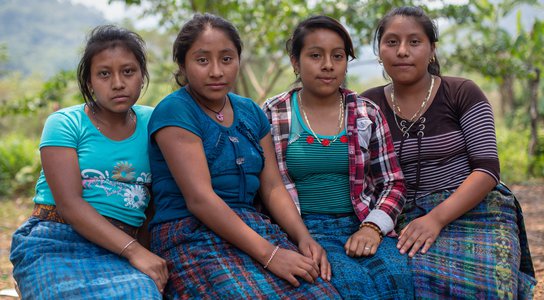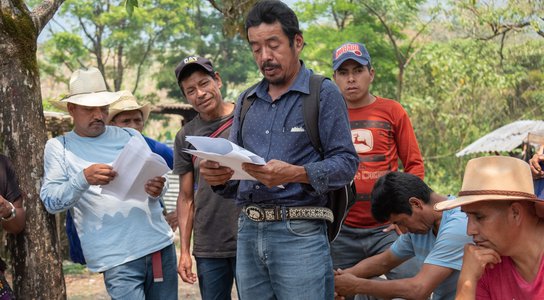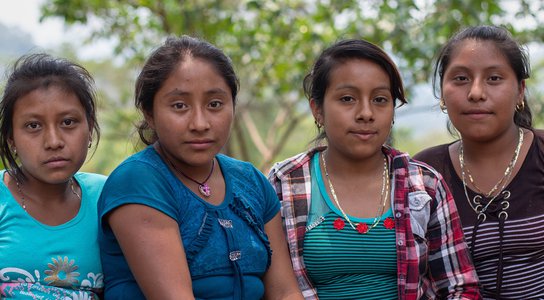Iranian environmentalist and former Government Deputy Minister Kaveh Madani speaks out about the criminalisation of environmental defenders in his native country.
In January 2018, nine environmental experts were arrested in Iran, accused of using their work with the Persian Wildlife Heritage Foundation (PWHF) to protect endangered cheetahs as a cover for spying. A few weeks later, one of them, Kavous Seyed-Emami, a university professor, died in prison in an alleged suicide. The others are currently on trial, several of them facing charges that could carry the death penalty.
This use of criminalisation to silence land and environmental defenders in Iran and the rest of the world is indicative of a wider global pattern. Across continents, we’re seeing governments and companies use countries’ courts and legal systems as instruments of oppression against those who threaten their power and interests. Criminalising defenders in this way makes attacks on them seem justified and weakens the legitimacy of environmental activism in the eyes of the public.
The case against the PWHF experts seems weak at best, and a terrifying misuse of national security legislation at worst. They have been accused of using camera traps to spy on missile sites – but experts say that isn’t possible with their equipment. The Islamic Revolutionary Guard Corps (IRGC) has accused them of working for the CIA and Mossad, but provided no evidence in public. Their trial is held behind closed doors, with a number of the detained recently driven to hunger strike in pursuit of justice. Even the intelligence investigations by the President Rouhani’s administration have apparently not found any evidence that they are spies. Despite this, they continue to be held under “temporary” detention without clear charges.
Yet the case of Iranian environmental experts does offer evidence of something else: in Iran, environmentalism is being securitized. Internationally their prosecution has drawn criticism from the rights groups, conservationists and scholars, European Parliament, UN, IUCN, and UN Environment. But inside Iran it has sent a chill through the small but growing community of dedicated conservationists and environmental activists that has gained root in recent years. By victimising one group, the authorities have signalled that the whole environmental sector should beware.
This criminalisation is something I have experienced first-hand. In 2017, while teaching at Imperial College London, I was invited to become a deputy head of Iran’s department of environment. After returning to my native country after 14 years, however, I was arrested upon arrival in Tehran by the IRGC, who proceeded to rifle through my phone, computer, email and social media accounts. I was eventually released but they continued to harass me, accusing me of being a “bioterrorist” and “water terrorist,” of creating droughts and of secretly trying to sign Iran up to the Paris Agreement – among other things. In the end, I resigned after 7 months of service, left, and went into hiding.
To be sure, the criminalisation of people trying to protect the environment is not confined to Iran. In 2018, as Global Witness documents in its most recent annual report, at least three people were killed on average every week trying to protect their lands and livelihoods from destructive industries like mining and logging. Countless more were threatened, smeared and thrown in jail. In many countries, from the UK and Canada to Guatemala and the Philippines, legal systems are being used to brand environmentalists as criminals.
These tactics tend to get less attention than killings, but they can be just as effective in crushing dissent. In Iran, the silence and confusion surrounding the PWHF case has created a climate of fear for other people working in the field. Environmentalists don’t know where the red line is anymore, so they self-censor their work. Many are now too afraid to collaborate or share data with international researchers and organisations as they did in the past. There is a sense of hopelessness among these selfless people whose only goal is to protect the nature.
The problem is that it is increasingly difficult to separate politics from the environment and the environment from politics. As we have seen with the global climate strikes, the environment has the power to unite people across ages, borders, languages, ideologies and cultures.
But criminalisation against land and environment defenders can undermine this unity. Criminalisation is particularly effective because the environmental space is in its infancy in Iran, so it is often regarded with bewildered suspicion by those in authority. Why, ask some, would anyone in their right mind wait all night in the desert to catch a glimpse of a big cat?
That may be slowly starting to change. Droughts and rising temperatures have brought what was once a niche issue in much of the Middle East into the mainstream in recent years. Drying water bodies and rising levels of pollution mean more people in Iran and the rest of the region are becoming aware of the need for environmentalism and understand the value of trying to protect nature. The breakdown of the climate will be felt around the world, and Iran and other Middle Eastern countries will be no exception. But for now, some environmentalists are still being treated like criminals.
Today is the World Humanitarian Day, a day when we recognise those people who dedicate their lives to others. Environmentalists who dedicate themselves to protecting the planet are among them, and few more so than the PWHF members who have been in prison for nearly 600 days under unclear charges without due process. Their work with the Asiatic cheetah has helped preserve a vital part of our shared natural inheritance – the danger they now face for doing so should worry us all.

